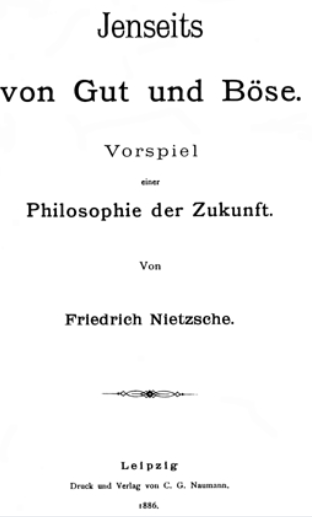|
admin 2025-4-15 23:01:01

Beyond Good and Evil★★★★
9
Nietzsche, Friedrich Wilhelm・・Ended
Updated: 1886年
Content length: 00
language:
Source: Project Gutenberg
9
Score
5★
8%
4★
25%
3★
33%
2★
8%
1★
25%
Synopsis
"Beyond Good and Evil" by Friedrich Wilhelm Nietzsche is a philosophical treatise written during the late 19th century. In this work, Nietzsche critiques traditional moral values and explores the complexities of truth, morality, and the nature of human consciousness, arguing against the dogmatic philosophers of the past. He introduces concepts that challenge the conventional dichotomy of good and evil, seeking to understand the underlying drives that shape human behavior and belief systems. The beginning of the book presents Nietzsche's provocative thoughts on the "Will to Truth" and its implications for philosophy. He raises skeptical questions about the very nature of truth and knowledge, suggesting that what is often regarded as "truth" may actually be a product of deeper instincts and motivations. Nietzsche critiques the philosophers for their blind adherence to dogmatic principles, encouraging a more nuanced and existential understanding of morality, one that acknowledges the intricate web of desires and power dynamics at play. Through his contemplative and often confrontational prose, he sets the stage for a re-evaluation of how we perceive virtue, knowledge, and the essence of existence itself.
| |
收录书单